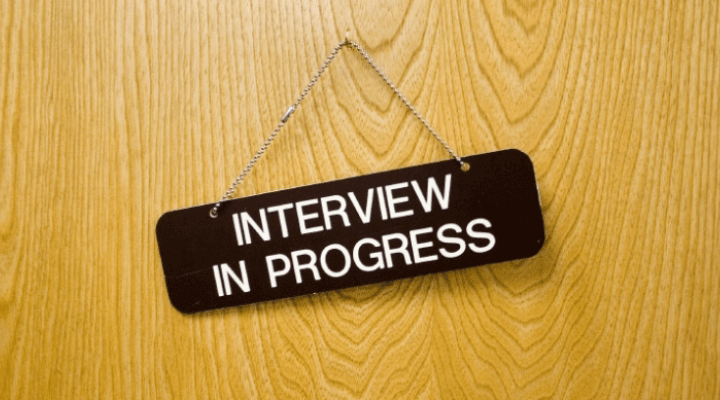You submitted a winning resume, and now you’re lined-up for an interview. You’re confident that you have the skills to perform on day one, and the potential to grow professionally if you’re asked to join the team. But to get the call, you’re going to have to earn corporate trust in your first and any subsequent meetings.
So set aside plenty of time to do some serious research and really learn about the business ahead. You want to walk in ready to do a lot more than answer a few simple questions. You want to get ready to engage the interviewer (or interviewers, often) in a serious discussion about what’s important to them, and to you.
THE BASICS
Obviously, you have to know that basics—why the skills you have will fit with the skills required of the job. And while you may implicitly understand that connection, you’ll serve yourself well rehearsing, out loud, how you will answer those simple sorts of questions. They are simple questions. But if you haven’t both rehearsed the logic of your answers, listened to how you articulate yourself, and then played that out in real time, you may be surprised how difficult it can be to say clearly what you want to say. And you don’t want to be surprised at anything you utter during the course of your interview.
If you’ve ever tried to memorize quotations or poetry, you know that repeating lines quietly in your head is a far cry different from speaking the lines. Indeed, you really don’t know you know it until you can say it, almost without thinking, out loud, and comfortably. So, if you feel a little strange doing rehearsing like this, go somewhere you can be alone and talk through what you know, out loud. Repeat.
KNOW THE PEOPLE
You probably know who will interview you. If you don’t ask. Then, do some research. Many organizations have biographies of key personnel posted, with pictures, and that’s a great help. Don’t stop there. See if you can find the interviewer’s social networking pages. He or she put the information out there in the public for a reason, so you should take advantage of that and know with whom you’re dealing when you walk in the door. Facebook profiles probably won’t tell you too much professionally, but you might see that that interviewer is just another human being with a life outside of work, and while Twitter doesn’t tell you much directly about the interviewer, you can certainly see what’s of interest.
Beyond social media, you should see if any of the folks you’ll meet have anything published—whether on blog sites, as peer-reviewed articles, dissertations, books . . . there’s no telling what you can find, and it just makes good sense to familiarize yourself with the people you’re going to meet about such an important matter. If the man or woman interviewing you is well known in his or her field or other fields, you should know that. If you’re introduced to the CEO, you should know whose hand you’re shaking.
KNOW THE BUSINESS
You know the job. But do you really know how that particular job in that particular office relates to parallel offices or agencies? Again, many offices post their purpose statements on professional sites, so certainly check those out. The job description probably explained some of these dynamics, and so you should review that description and think about the broader implications. These are what you might call tactical level considerations.
Operationally speaking, you should understand how your office or position relates to the rest of the organization. How does your office’s purpose relate to the organization’s mission? You should look for an organizational diagram online, even though those sorts of pedantic graphics aren’t much en vogue these days. Make sure you understand the business’s vision and values and, again, think about how they relate to the job you may be doing. Even if the job you’re seeking isn’t a leadership position in the company, you should be able to talk with some familiarity about mission, vision, and values.
Then think strategically—how does the office you’re hoping to hire with impact the organization’s public face. No matter where you work in an organization, chances are your day-to-day projects may have an impact—hopefully good—on the organization’s brand. If you understand that brand, then with some thought you can pretty quickly begin to understand what flies and what doesn’t fly, and that may help you think about how to talk about concepts during the interview.
BE YOU
Armed with all this great information, you might be tempted to walk in, embrace the interviewer or CEO, and say something like, “Oh, I just loved the work you did for ClearanceJobs.com! Really, really good stuff.” Or, “My father’s best friend went to U. of Wherever You Went. Do you happen to know Bill Smith III?” You’ll look like a phony.
No, the reason you take the time to do this research is so you can converse intelligently and more comfortably on terms relevant to the organization you’re petitioning. That’s all. You want to be comfortable, as comfortable as you can be while you’re nerved up for the interview of your life. But if you really appreciate the organization’s values and mission, sure, when the time is right, say so: “I really, really appreciate what ClearanceJobs.com is about. And I understand your company’s values, and I think they’re values worth perpetuating.”
Unless you don’t. Then don’t say it.
Be genuine. Be confident. Be open-minded. Look around. Listen. Listen to questions, pause, think, answer. Ask follow-up questions or ask for clarity or an example. Don’t be pompous. Don’t drop names. Don’t present yourself as a know-it-all, because even if you are a know-it-all, you’ll turn everybody off.
Basically, be yourself.



